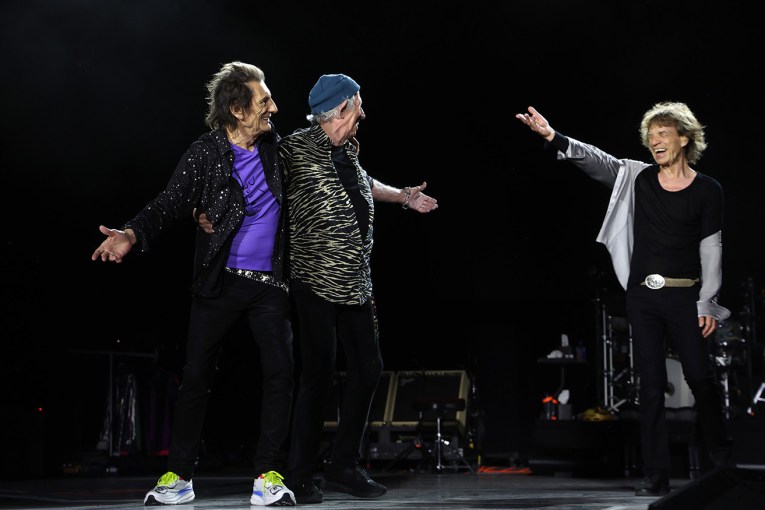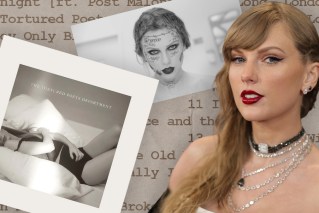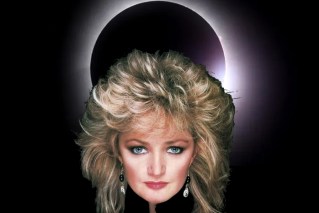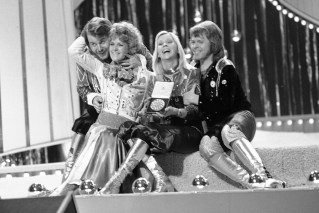U2’s songs of innocence becomes a corporate evil
U2 and Apple planned the gesture for maximum publicity – a concert by the Irish megastars at the tech giant’s latest product launch, with the surprise that their new album had just been released for free to the world’s half-billion iTunes customers.
As physical copies of the Songs of Innocence album go on sale, the band that earned global critical acclaim three decades ago has faced a backlash with some accusing U2 of turning music into spam.
The September 9 free release will still pay off handsomely for the already-wealthy rockers, with several reports saying that Apple has committed $US100 million ($A108.20 million) to distribute the album as part of its promotion campaign for the iPhone 6.
But few predict that U2 has created a new model, with lesser-known bands unlikely to survive by giving away their music.
So many people found it presumptuous that the entire world would want U2’s album that Apple offered special advice on its website on how to delete it.
“I don’t think it was very good marketing. I think that’s been proven out by the commentary and the backlash. It was very heavy-handed and inappropriate,” said Eric Levin, owner of the independent store Criminal Records in Atlanta.
Levin, who co-founded the annual Record Store Day aimed at promoting local shops, expected little effect from the iTunes giveaway on his sales of “Songs of Innocence.”
Collectors who seek physical albums, he said, were distinct from casual digital listeners who can easily find free music through streaming services.
“The first major artist that makes a mistake as grand as not providing a physical artefact will be the laughing stock that, in some circles, U2 is today,” he said.
The Entertainment Retailers Association, which represents Britain’s music sellers, said U2 devalued music and hurt the industry’s future.
“U2 have had their career, but if one of the biggest rock bands in the world are prepared to give away their new album for free, how can we really expect the public to spend 10 pounds ($A17.31) on an album by a newcomer?” the group’s chairman, Paul Quirk, said in a statement.
Heavy metal godfather Ozzy Osbourne made a similar argument but was more blunt, telling Britain’s Shortlist weekly of U2’s move: “It’s f***ing selfish, really.”
Clearly many fans enjoyed receiving a free album.
Some 26 million people downloaded Songs of Innocence in its entirety and another 81 million “experienced” part of it, an Apple executive was quoted as telling Billboard magazine.
U2’s frontman Bono described the release as an innovative way to bring a mass audience to his album, which he described as his most personal to date with songs about his late mother and boyhood home.
Bono pointed out that more people had already listened to Songs of Innocence than had bought the band’s top-selling album, 1987’s The Joshua Tree.
“Just remember this: a lot of Irish blood, sweat and tears went into your junk mail,” he said sarcastically in an interview with San Francisco radio station KITS.
Bono, known in recent years for his campaign against global poverty, said that U2 started with an in-your-face punk spirit and that the album release was part of that.
“You want to be part of the zeitgeist, sometimes you have to smash and grab,” said Bono, who dedicated the first song on the album to late punk icon Joey Ramone.
U2 is not the first band to experiment with free releases amid the rapid changes in the music industry.
Radiohead in 2007 let fans pay whatever they wanted for album In Rainbows. But the move by the acclaimed experimental rockers, who eschew corporate sponsorship, triggered more curiosity than criticism.







